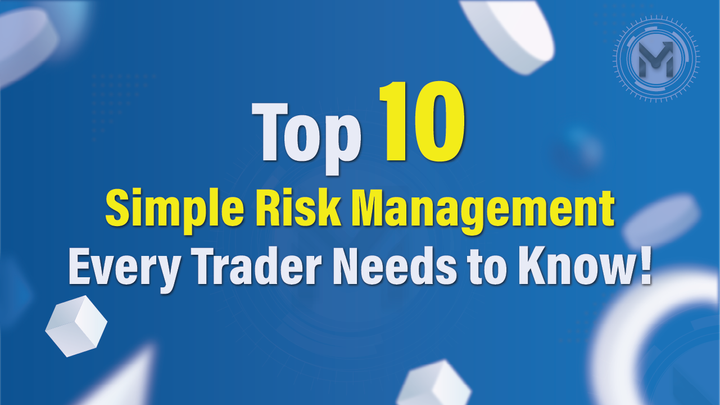Equity Trading vs. Derivatives: Which is Right for You?

Introduction
In the world of stock markets, two of the most popular and commonly discussed methods of trading are Equity Trading and Derivatives Trading. But when you are just starting out or even if you are looking to diversify your portfolio, you might be left wondering which one is better for you? Which method can provide more returns, and which one fits your risk? The answer to these questions is not always straightforward, as it depends on several factors, such as your trading psychology, risk management strategies, and your familiarity with the respective tools.
In this blog, we will take a detailed look at equity trading vs derivatives trading, explore the advantages of both, and discuss the essential aspects of trading. Moreover, we will also explore QuantMan, an advanced algorithmic trading platform designed to help traders make profitable trades while managing risks effectively.
Equity Trading:
Equity trading involves buying and selling shares of publicly listed companies. When you purchase equity, you are essentially becoming a partial owner of the company. Equity trading is the most traditional and straightforward form of investing in the stock market.
For Example; if you decide to invest in Reliance Industries, you would be buying its stock at the current market price. If the price goes up, you make a profit; if it goes down, you will end up with a loss.
Advantages of Equity Trading:
· Long-Term Capital Appreciation: The biggest advantage of equity trading is the potential for long-term growth. For instance, HDFC Bank, Tata Consultancy Services (TCS), and Infosys have all proven to be growth stocks over the last decade. Investors who held their shares have seen substantial capital appreciation.
· Ownership and Dividends: As an equity holder, you not only benefit from price appreciation but also from dividends. Companies like ITC and Sun Pharma regularly pay dividends, offering an additional income stream.
· Simpler to Understand: Compared to derivatives, equity trading is relatively easier to understand. You buy a stock, and you wait for it to rise or fall in value. The process of buying and selling is intuitive, making it ideal for beginners.
· Liquidity: Stocks of major companies like Bharti Airtel or Reliance are highly liquid, meaning you can easily buy and sell them whenever needed.
· Transparency: The Indian stock market is regulated by SEBI, and investors have access to detailed financial reports of companies, making it easier to assess the true value of stocks.
Risk Management in Equity Trading
While equity trading offers various advantages, it is not without risk. However, effective risk management strategies can help minimize the potential downside. For instance:
- Diversification: Rather than putting all your money into one stock, you can spread it across multiple sectors, reducing the impact of a single stock's poor performance.
- Stop Loss Orders: A stop loss is an order placed to sell a stock once it reaches a particular price, helping you limit your losses.
Derivatives Trading:
On the other side of the spectrum lies derivatives trading, where you are not directly buying stocks but instead are trading financial contracts that derive their value from an underlying asset like stocks, commodities, indices, etc. The two main types of derivatives traded in India are Futures and Options.
Futures:
In futures trading, you agree to buy or sell an asset at a predetermined price at a specific future date. It's a contract between two parties, and the buyer agrees to buy the asset at the specified price, while the seller agrees to sell.
For Example: If you are bullish on Nifty 50, you could buy a Nifty futures contract, betting that the index will rise. If the Nifty moves up by 5%, you make a profit.
Options:
Options provide the right but not the obligation to buy call or sell put an asset at a certain price within a specified period.
For Example: You buy a Nifty Call option if you expect the index to rise. If it rises, you make a profit. If it doesn’t, you lose the premium paid for the option.
Advantages of Derivatives Trading:
· Leverage: One of the most attractive features of derivatives is leverage. You can control a large position with a relatively small investment.
For example, if you buy a Nifty futures contract worth Rs. 1,00,000 but only put down a margin of Rs. 10,000, your potential return could be substantial if the index moves in your favour.
· Hedging: Derivatives allow you to hedge your equity positions. For example, if you hold stocks of Tata Motors but are worried about a short-term price drop, you can sell a Tata Motors Put option to offset potential losses.
· Short Selling: In derivatives trading, it’s easier to take a short position, i.e., to bet on the decline of an asset. This is not as straightforward in equity trading.
· Profit in Any Market Condition: While equity traders are typically concerned with price appreciation, derivatives traders can profit in both bullish and bearish markets through the use of strategies like bear call spread, bull call spread etc.
· Reduced Cost of Trading: Trading in derivatives often incurs lower transaction costs compared to equity trading, as the contracts are typically more liquid and don’t involve stamp duty on the entire trade value.
Risk Management in Derivatives Trading
The leverage that makes derivatives attractive also makes them riskier. However, managing risk is essential for success:
- Stop-Loss Orders: Similar to equity trading, stop-loss orders are crucial to limit your potential losses.
- Position Sizing: Proper position sizing helps prevent overexposure to a single trade. In derivatives trading, it's easy to be tempted to take large positions due to the small initial margin requirement, but this can lead to significant losses if things go wrong.
- Hedging: Traders often use derivatives to hedge against potential losses in their equity portfolio. For example, if you hold a significant position in Infosys, you might buy a Put option on Infosys stock to protect yourself from a price decline.
Trading Strategies:
When it comes to trading strategies, both equity and derivatives require a well-thought-out approach. Let’s compare the strategies employed in both forms of trading:
Equity Trading Strategies:
· Buy and Hold: This is a long-term strategy where investors purchase stocks and hold them for years, expecting them to appreciate. For example, buying stocks like Reliance or HDFC and holding onto them for several years.
· Swing Trading: In swing trading, traders aim to capitalize on short to medium-term price movements. They buy a stock when they anticipate a rise and sell when the price peaks.
Derivatives Trading Strategies:
- Covered Call: A popular strategy in which you own the underlying stock and simultaneously sell a Call option on it. This strategy allows you to earn premiums, even if the stock price remains flat.
- Protective Put: When you buy a stock and also buy a Put option to protect yourself from a downside. This is a form of hedging.
- Straddle Strategy: In this strategy, you buy both a Call and a Put option for the same underlying asset, betting on high volatility. If the stock moves significantly in either direction, you stand to profit.
- Iron Condor: A non-directional strategy involving four options contracts. This is ideal when you expect low volatility in the market.
QuantMan: An Algorithmic Trading

For those who want to take advantage of both equity and derivatives trading with a high level of precision, QuantMan an algorithmic trading platform can be a game-changer. QuantMan offers advanced risk management, automated trading strategies, and real-time data-driven insights to improve profitability. Here’s how QuantMan can help:
- Automated Execution: Using algorithms, QuantMan executes trades with lightning speed, ensuring that you never miss out on an opportunity.
- Back testing: Before committing real money, you can backtest your trading strategies using QuantMan to see how they would have performed in different market conditions.

- Risk Management: With built-in risk management tools like dynamic stop losses, position sizing, and portfolio diversification, QuantMan helps protect your capital.
- Real-time Data: QuantMan provides access to real-time market data, ensuring that your decisions are based on the most up to date information, giving you an edge over manual traders.
Trader Mind-set and Psychology
Success in both equity trading and derivatives trading is as much about trading psychology as it is about the strategies you use. Successful traders maintain a calm, disciplined mind-set, which allows them to navigate the market's inevitable ups and downs. Traders must remain patient, manage their emotions, and stick to their trading plan.
- Emotional Control: Whether you’re in the middle of a bull market or facing a downturn, it’s essential to keep emotions like greed and fear at bay. Both types of trading can tempt you to act impulsively, but staying focused on your strategy is key.
- Consistency: Over time, consistency in following your trading strategies and risk management protocols will lead to profitable outcomes. Traders who take random, unplanned actions based on market noise often end up losing money.
Conclusion:
Choosing between equity trading and derivatives trading depends on your risk tolerance, trading experience, and financial goals. If you're new to trading and prefer a long-term approach, equity trading could be a better fit. However, if you're looking for greater flexibility, leverage, and the ability to profit from various market conditions, derivatives trading might be more suitable.
No matter which path you choose, remember that both types of trading require proper risk management and discipline. Platforms like QuantMan can add an additional layer of precision and efficiency to your trading, allowing you to make more informed and profitable decisions.
QuantMan is one of India’s top online platforms for algorithmic trading that allows users to create, backtest, and deploy algorithmic trading strategies without any coding knowledge. It offers a variety of features, including
· A drag-and-drop strategy builder
· A library of Sample strategies
· A Back-testing engine that allows users to test their strategies on historical data.
· Heat-map shows visual representation of strategy performance over time.
Happy trading!


